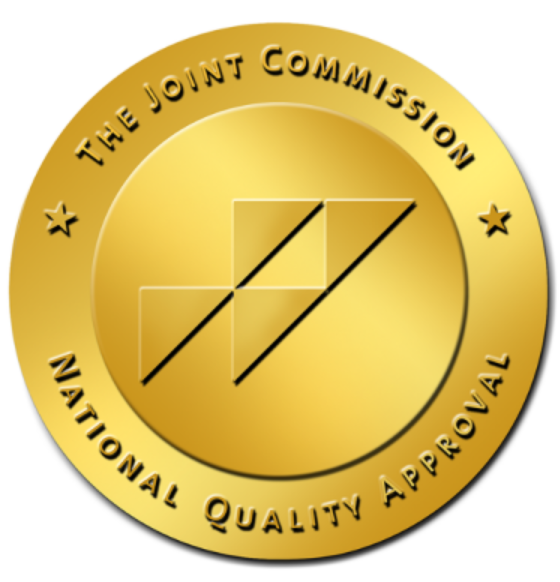Social Anxiety Disorder
Beyond Shyness and Introversion: What Is Social Anxiety?
Social anxiety disorder is a common anxiety disorder characterized by a debilitating fear (or “phobia”) of other people and social contacts. Those suffering from social anxiety may go to great lengths to avoid any social situation. In the most extreme cases, the person may avoid leaving their home entirely.
According to the National Institute of Mental Health, social anxiety is “an intense fear of being watched and judged by others.” Social anxiety is not just about being “shy” or “introverted.” Shyness may be a personality trait, and introversion defines a person’s temperament. On the other hand, social anxiety hinders a person’s ability to function normally. While a shy or introverted person may not prefer to be the center of attention or “in the spotlight,” they will generally not experience the crippling distress that defines social anxiety.
Social Anxiety As an Underlying Cause of Addiction
Some people with social anxiety turn to addictive substances or behaviors to cope with social anxiety. At Create Recovery Center of Los Angeles, our clinical team specializes in dual-diagnosis treatment. We know that treating the root cause of addiction is just as important for recovery as treating the addiction itself. But why might people with social anxiety become addicted to drugs, alcohol, or specific behaviors?
- Drugs and alcohol can “take the edge off” during social situations.
- People might be using a particular substance to self-medicate their anxiety.
- Addiction can be gradual. For example, a person might be offered a drink during a party, then realize they feel less anxious. They begin to drink before all other social events to “loosen up” and relax. While the behavior began as a social expectation, drinking became the only means of feeling comfortable within a group of people.
- Process addictions and impulse control disorders, like the internet or gambling, can be a way of escaping or connecting to the world without face-to-face interactions.
- When a person feels fearful of others or panics when going out, they might feel more comfortable talking with people over the internet, playing video games with chat features, or only connecting to others via smartphones.
- Again, the behavior begins as a way to fulfill the need for connection. However, if the person is only interacting with others through a device, they might be limiting themselves on addressing the phobia, preventing them from putting themselves out into the world.
- Other impulse control disorders, like sex or porn addictions, can also develop as a means of coping with social anxiety.
- Like other forms of addiction, sexual and porn addictions can provide short-term relief for escaping uncomfortable feelings associated with social anxiety.
- Pornography is readily and easily accessible. A person might experience such great anxiety that they find dating challenging. Pornography can become a way to fulfill sexual needs when a person avoids others due to distressing feelings.
- While sex is a natural and biological need, when sexual thoughts or behaviors become a method of coping with anxiety, they can be disruptive and addicting.
Addiction can be treated by addressing the underlying causes of an addiction while developing healthy coping skills to replace addictive behaviors. Create Recovery Center invites you to explore our dual-diagnosis treatment options for those struggling with addiction and social anxiety.
How Is Social Anxiety Disorder Treated?
We base our assessment questions on the criteria laid out by the fifth edition of The Diagnostic and Statistical Manual of Mental Disorders (DSM-5). Regardless to the results of the assessment, it is important to note that an anxiety disorder must be diagnosed by a trained medical professional.
- Addressing the underlying thoughts, feelings, and beliefs at the core of anxiety.
- Getting out there and exposing oneself to social situations while learning to cope with social anxiety under professional guidance.
- Cognitive Behavioral Therapy (CBT):
- CBT is a method of therapy that involves challenging a person’s underlying beliefs and thought process.
- Many people with social anxiety have a fear that others are judging them during social situations.
- By challenging these beliefs, a person can develop the self-esteem they need to get out and share their gifts with the world.
- Medications:
- Your healthcare provider might recommend using medications to ease symptoms of anxiety.
- These medications can help you as you develop coping skills and strategies for addressing your social anxiety.
- Holistic Approaches:
- Decreasing the overwhelming feelings of anxiety can involve addressing other health areas, as you explore treatments based on the “mind-body” connection.
- Some examples of holistic approaches include:
- Nutritional counseling
- Exercise
- Yoga
- Mindfulness and meditation
- Residential Treatment Programs:
- Residential treatment can be helpful for those suffering from severe symptoms of social anxiety, especially with a dual-diagnosis of addiction.
- Residential treatment programs offer all-inclusive treatment methods under one roof for those suffering from a range of debilitating issues related to addiction and mental health.
- Create Recovery Center and other residential programs offer a safe and secure environment for individuals to heal from their psychiatric conditions.
Reclaim Your Life at Create Recovery Center
A dual-diagnosis of social anxiety and addiction can negatively impact the overall quality of your life. Each person’s experience with addiction is unique, painful, and treatable! The expert staff at Create Recovery Center can help you break free from the bonds of addiction and social anxiety with proven, evidence-based treatment methods. Our team is here for you to reclaim your life from social anxiety and addiction!





